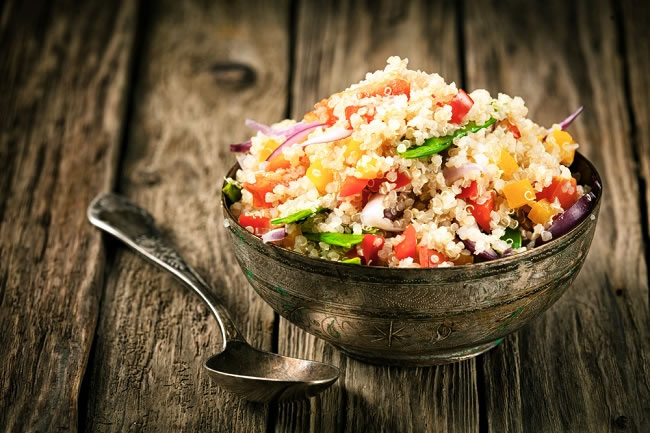1
HOME > Health & Fitness >
LOW ON ENERGY? HOW TO BOOST YOUR LEVELS
8 SIMPLE WAYS TO GET MORE ENERGISED
Written by Menswear Style in Health & Fitness on the 16th January 2015

We all know what all-out energy drain is - you feel exhausted and experience headaches or muscle aches. The only thing you may want to do is hit the bed. However, a low-grade energy drain may not be as obvious. In most cases, people experience a lack of interest or motivation to be involved in activities which they previously enjoyed.
It becomes more difficult for you to concentrate, your productivity levels hit an all time low and you begin to feel stressed while facing simple challenges.
It doesn’t matter what type of drain you’re experiencing, you need an energy boost and we’ve got you covered. Here are some surefire ways of boosting your energy levels.

Start Moving
We understand that you may be too tired to exercise but numerous studies indicate that the more you move, the more active you will be. It’s time you throw your excuses out of the window and start pushing your body out of its comfort zone. If you’re not motivated to exercise enough or don’t have enough time, try exercising in short bursts at your maximum capacity. This will help you burn fat and significantly elevate your metabolism and best of all; you’ll feel pumped at the end of your workout. We recommend exercise videos in case you’re not in the mood to hit the gym.

Consume More Iron
You need iron to produce energy from food or glucose, the primary fuel for the brain and body. Foods such as lean red meat, fish, chicken, eggs, whole grains, legumes, green leafy vegetables, nuts, seeds and dairy are packed with iron and should be included in your diet.
Boost your Magnesium Intake
Magnesium is an excellent stress-reliever and is found in unprocessed, natural foods. Consume more dark green leafy veggies, whole grains, nuts and seeds and legumes for magnesium.

Consume B-vitamin Foods
B-vitamins play a vital role in producing energy from food. The best sources include meat, salmon, poultry, eggs, dairy, whole grains and green leafy veggies. Taking a B-complex multivitamin every day along with a diet rich with these foods is a good option too.
Ditch the Refined Carbs…
And go for complex carbs instead. Refined carbs include white flour, white sugar, and white rice. These sources are often nutritionally poor and cause blood sugar spikes. Complex carbs, however, stabilize your blood sugar and energy levels. Some good sources of complex carbs include whole grain products, oats, brown rice, quinoa, amaranth, buckwheat, muesli and sweet potato.

Reduce Your Caffeine Intake
Having a cup of coffee when you’re exhausted may seem like a good idea but consumption of caffeine elevates the production of stress hormones, causing a temporary energy boost. This energy boost can later result in anxiety, frustration, irritability, insomnia, muscle tension and weakened immunity. Coffee is good for the heart but it is important that you stick to a maximum of two cups per day and choose healthier alternatives such as green tea.

Sleep Sufficiently
Try to get at least eight hours of sleep every night to increase your health and overall well-being. Sleep is essential for cell production and release of proteins for growth and repair of tissues. Sleep deprivation can result in lack of motivation and productivity, poor concentration, irritability, mood swings and weakened immunity.
Check For a Thyroid Problem
Millions of folks have thyroid problems, but only a fraction of them get diagnosed. Hypothyroidism, a common thyroid disorder, can result in severe fatigue, lack of sleep, nightmares, mood swings, anxiety, weight gain and poor concentration. If you notice any of these problems, get a blood test done and check your TSH levels.

*Tired, Sleeping, Coffee, Gym, Beef, Quinoa via Shutterstock
Trending
2
3
4
5
6
7
8
9
10









